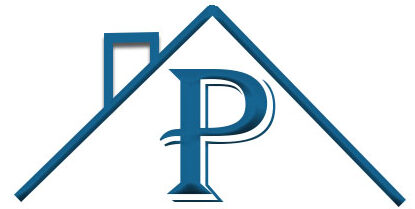Buying a new home is one of life’s most gratifying experiences. As you approach the big day of closing, however, all the details can be a little overwhelming. You might easily overlook the single most important step in the entire process — the purchase of Title Insurance on the wonderful new home of yours.
What is a Title?
A title is the evidence, of right, that a person has to the ownership and possession of land. It is possible that someone other than the owner has a legal right to the property. If that right can be established, this person can claim the property outright or make demands on the owner as to its use.
Do I need Title Insurance?
Most definitely! Title insurance is a means of protecting yourself from financial loss in the event that problems develop regarding the rights to ownership of your property. There may be hidden title defects that even the most careful title search will not reveal. In addition to protection from financial loss, title insurance pays the cost of defending against any covered claim.
What can make a Title Defective?
Any number of problems that remain undisclosed after even the most meticulous search of public records can make a title defective. These hidden “defects” are dangerous indeed because you may not learn of them for many months or years. Yet they could force you to spend substantial sums on a legal defense, and still result in the loss of your property.
But the lender already requires Title Insurance, won’t that protect me?
Not necessarily. There are two types of Title Insurance. Your lender likely will require that you purchase a Lender’s Policy. This policy only insures that the financial institution has a valid, enforceable lien on the property. Most lenders require this type of insurance, and typically require the borrower to pay for it. An Owner’s Policy on the other hand is designed to protect you from title defects that existed prior to the issue date of your policy. Title troubles, such as improper estate proceedings or pending legal action, could put your equity at serious risk. If a valid claim is filed, in addition to financial loss up to the face amount of the policy, your owner’s title policy covers the full cost of any legal defense of your title.
How much does Title Insurance cost?
The one-time premium is directly related to the value of your home. Typically, it is less expensive than your annual auto insurance. It is a one-time only expense, paid when you purchase your home. Yet it continues to provide complete coverage for as long as you or your heirs own the property.
When should I look into purchasing Title Insurance?
Call Old Republic Title as soon as you and the seller sign the earnest money contract. With a brief summary of the details, our team of title experts will begin a search of the public records and issue a title commitment. Because there are a number of steps we must take to make certain that we know all we can about the title, it is wise to get the ball rolling as soon as possible.
Should I shop around for the best Title Insurance deal?
Some states closely regulate rates. Others permit open competition, often resulting in significant differences between title insurers on rates and coverage. Depending where you live, it pays to investigate your options carefully in order to obtain the most complete coverage.
Can my title company handle the closing?
Yes, in most areas of the country. Old Republic Title and its agents act as a central clearinghouse for the parties involved — collecting necessary documents, insuring adherence to the lender’s title instructions, making arrangements for proper payment and distribution of funds. We are fully prepared to work with you from the beginning of your transaction all the way through to conclusion.
What items are needed at closing?
You will want to have these items complete or in hand when you come to the closing:
Buyer
- Buyer’s copy of purchase agreement
- Cashier’s check(s) to make all payments
- Proof of purchase of insurance for fire, casualty, etc.
- Invoices for any unpaid taxes, utilities or assessments
- Photo identification (passport, driver’s license, or state-issued identification card)
Seller
- Seller’s copy of purchase agreement
- Invoices for any unpaid taxes, utilities, assessments, and latest utilities meter readings
- Receipts for last payment of interest on mortgages
- Bill of Sale of personal property covered by the purchase agreement
- Any unrecorded instruments that affect the title
- Proof of satisfaction of any mechanics’ liens, chattel mortgages, judgments, or mortgages that were paid prior to the closing
- Photo identification (passport, driver’s license, or state-issued identification card)



